It’s important that parents understand what experiential education is and why it is important for their child. The world is changing at a rapid pace and students must be able to be creative and analytical thinkers to, not only cope, but thrive in this new environment.
Why experiential education?
As globalisation brings economic and cultural disruption, young people must become more agile and entrepreneurial. Schools need to rethink how and why their programs translate into brave and bold graduates.
Research in boys’ education has established the transformative power of taking learning beyond the classroom and engaging in real world experiences.
“Research in boys’ education has established the transformative power of taking learning beyond the classroom and engaging in real world experiences.”
What is experiential education?
A simple definition of experiential education is learning by doing – yet that does not do it justice. Linda Lewis and Carol Williams captured the approach more thoroughly in their article, Experiential Learning: Past and Present: “Experiential education first immerses learners in an experience and then encourages reflection about the experience to develop new skills, new attitudes, or new ways of thinking.”
What does experiential education look like?
Putting experiential education into practice is not as simple as organising a hands-on science experiment. The activity is not necessarily experiential, although it has the potential to be. Experiential learning takes more careful planning and a thorough understanding of the approach.
There are characteristics that need to be present for a learning experience to be experiential. As a parent, you should be equipped with this knowledge so you can work out if your son’s school is using best practice with this approach. These characteristics include:
- Equal parts previous skill, theory and investigation – activities should be set up so that students have the previous skills and theoretical knowledge needed to then investigate a situation with an open mind. This type of scaffolding is critical to ensure students have the right ‘tools’ to navigate an experiential learning activity.
- A safe environment – the teacher must create a safe space for students to go on a journey of self-discovery. This takes careful planning to allow students the freedom to explore without the fear of things going wrong.
- Time to reflect – experiential learning activities are not linear and don’t always go smoothly. Reflection is a vital part of the learning process so students have the opportunity to think about what worked and what didn’t.
- Meaningful and relevant activities – students are the learners as well as the ‘self-teachers’ in experiential learning, therefore activities need to have meaning and be relevant to fuel motivation. Students should be driven and fully immersed in the experience; emotional investment in the activity is key to this happening.
- Big picture perspective – all learning activities should maintain a big picture perspective so that real world connections can be made. Students should begin to understand the complex relationships between different subjects and across different aspects of life outside of school.
Increasingly, schools are needing to adjust their approach to teaching to adapt to the way students learn and what they need to be successful in the future. Experiential education, in or out the classroom, prepares students to be analytical and creative problem solvers and helps them to better internalise new knowledge and skills through real world experience.
Download your copy of the Glengarry brochure to learn how Scots uses experiential learning in an outdoor setting.






